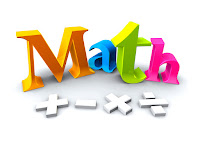
CALCULATING DEVICES
Operations with the scientific calculator
1. Addition
a) 375 + 601 = 976
b) 401 + 2801 + 70120 + 3 = 73, 325
c) 0.0175 + 2.561 + 3.8976 = 6.4761
2. Subtraction
a) 2890 – 576 =2314
b) 215 – 891 = -676
c) 7510 – 204 – 79 = 7227
3. Division
a) 591 ÷ 27 = 21.889
b) 79775 ÷ 4795 = 16.62671947
4. POWERS (^)
a) 28 = 256
b) 49 = 262,144
c) 93 = 729
d) 4292 = 184,041
4. Multiplication
a) 7694 x 21 = 161,574
6. Roots
i) Square roots
ii) Cube root
iii) nth Root
Note:
Also
EXAMPLE
a) Use your calculator to find the value of
b) Evaluate to 3 decimal places
i)
ii)
c) Find the value of A given by the formula if P = 126, r = 4 and n = 5
Solution
d) The area of a triangle is given by where 2s = a + b + c. Find the area of a triangle given that a = 14.2, b = 12.6 and c = 8.4
Solution
a + b + c = 2s
14.2 + 12.6 + 8.4 = 2s
Power of e
i) Calculate
a) 2 = 7.389056099
b) 5 = 148.4131591
c) = 1.947734041
Logarithm function
Example
1. = 0.69897
2. = 2.321928095
Natural Logarithm x
1.
2.
Trigonometrical function
1. Sin 30 = 0.5
2. Sin 30 27’ = 0.506786256
3. Cos-1 = 60
QUESTION
1. correct to 6 decimal places
2. correct to 3 decimal places
3. correct to 4 decimal places
4. correct to 6 decimal places
5. correct to 4 decimal place
6. correct to six decimal places
7.
8. correct to five decimal places
9. correct to six decimal places
10. correct to six decimal place
11. correct to six decimal places
12. correct to five decimal places
ANSWERS
1. 1.667812
2. 351.886
3. 1.6283
4. 3.033894
5. 1.4868
6. 0.245465
7.
8. 0.37881
9. 1.226122
10. 2.995246
11. 1.3
12. 0.0
CONVERSION OF ANGLES FROM DEGREES TO RADIANS AND THE OPPOSITE
EXAMPLE
1. Convert 180° to radian
= 3.141592654 rad
2. Convert 1.57 rad to degrees
= 89.95437384
Statistical functions
Question
1. Find x , , x n – 1. Using your calculator for the following number 16, 22, 10
Solution: = 48
= 16
x n -1 = 6
2. Find , , x n – 1, using your calculator for the following numbers 19, 11, 12, 20
Solution
=62
= 15.5
X n – 1 = 4.65
QUESTION
1. Change the following angles to radians
i) 90° = 1.57 rad
ii) 210°= 3.67 rad
iii) 60° = 1.05 rad
iv) 360° = 6.28 rad
2. Change the following radians to angles
i) 1.732 rad= 99.24
ii) 3.12 rad = 178.76
iii) 6.28 rad =359.82
iv) 0.5 rad =28.65
3. Calculate the following 24° 8’ + 85.34 rad – 60° 31’
4. Using statistical functions from your calculator. Find , , n -1
i) 1, 3, 4, 4, 8
n -1= 2.55
ii) 0.1, 2.4, 0.8, 1 =4.3 , =1.075 , n -1 = 0.9639
iii) 0.9, 2.9, 3.9, 3.9, 7.9 n -1=2.55
iv) 17, 18, 20, 22, 23 , n -1= 2.55
v) -10,-5, 5, 15, 20, , n -1= 127.5
vi) 17, 17, 17, 17, 21, 21, 25, 25, 26 , n -1= 3.87
vii) 9.81, 9.81, 9.82, 9.82, 9.18, 9.18, 9.18, 9.84, 9.84, 9.84 , n -1= 0.011
More questions
1. Calculate the following
i) Correct to four decimal places …. -1.751365301 1.7514
ii) Correct to 4 decimal places… 0.855861129
2. Find , ,x n – 1 of 64, 44, 56 and 66… , n -1=9.98
3. Calculate
i) Correct to 4 decimal places
ii) Correct to 6 decimal places
iii) Correct to 5 decimal places
Examples
1. Find , , n – 1. For the following frequency distribution
| X | 61 | 64 | 67 | 70 | 73 |
| F | 5 | 18 | 42 | 27 | 8 |
Solution
= 6,745
= 67.45
n – 1 = 2.93
2. i) Calculate , , n – 1 for the following data
| X | 62 | 63 | 64 | 65 | 66 | 67 | 68 | 69 | 70 | 71 | 72 |
| F | 25 | 35 | 52 | 84 | 120 | 135 | 101 | 61 | 40 | 33 | 14 |
= 46,736
= 66.77
n – 1 = 2.29
iii)
= 1.91
= 1. 77
n -1 = 2.94
iv)
| X | 9 | 12 | 15 | 18 | 21 | 24 | 27 | 30 | 33 | 36 |
| F | 12 | 10 | 15 | 19 | 12 | 14 | 3 | 4 | 1 |
= 1632
= 18.13
n – 1 = 6.31
2. Express your answer in
i) Degree and minutes
ii) Radians
i) 25° 11’ + 20.6 rad – 55’
= 25° 11’ + 1, 180.29° – 55
= 1204° 33’
= 21.02rad
ii) 0.8rad + 16.4° + 73.8rad – 120° 54’
= 0.8rad + 0.29rad + 73.8rad – 2.11rad
= 72.78rad
= 4169° 45’
iii) 71° 41’ 22’’ + 29.8rad – 16.4°
= 71° 41’ 22’’ + 1,707.41° – 16.4°
= 1762° 41’
= 30.76rad
3. Calculate the following
i) Correct to 6 decimal place
= 1.027684683
≈ 1.027685
ii) Correct to 6 decimal places
= 3.2520609
Mathematics (from Ancient Greek μάθημα; máthēma: ‘knowledge, study, learning’) is an area of knowledge that includes such topics as numbers (arithmetic, number theory), formulas and related structures (algebra), shapes and the spaces in which they are contained (geometry), and quantities and their changes (calculus and analysis).
Most mathematical activity involves the use of pure reason to discover or prove the properties of abstract objects, which consist of either abstractions from nature or—in modern mathematics—entities that are stipulated with certain properties, called axioms. A mathematical proof consists of a succession of applications of some deductive rules to already known results, including previously proved theorems, axioms and (in case of abstraction from nature) some basic properties that are considered as true starting points of the theory under consideration.
Mathematics is used in science for modeling phenomena, which then allows predictions to be made from experimental laws. The independence of mathematical truth from any experimentation implies that the accuracy of such predictions depends only on the adequacy of the model. Inaccurate predictions, rather than being caused by incorrect mathematics, imply the need to change the mathematical model used. For example, the perihelion precession of Mercury could only be explained after the emergence of Einstein’s general relativity, which replaced Newton’s law of gravitation as a better mathematical model.
But for more post and free books from our site please make sure you subscribe to our site and if you need a copy of our notes as how it is in our site contact us any time we sell them in low cost in form of PDF or WORD.
...

No comments:
Post a Comment